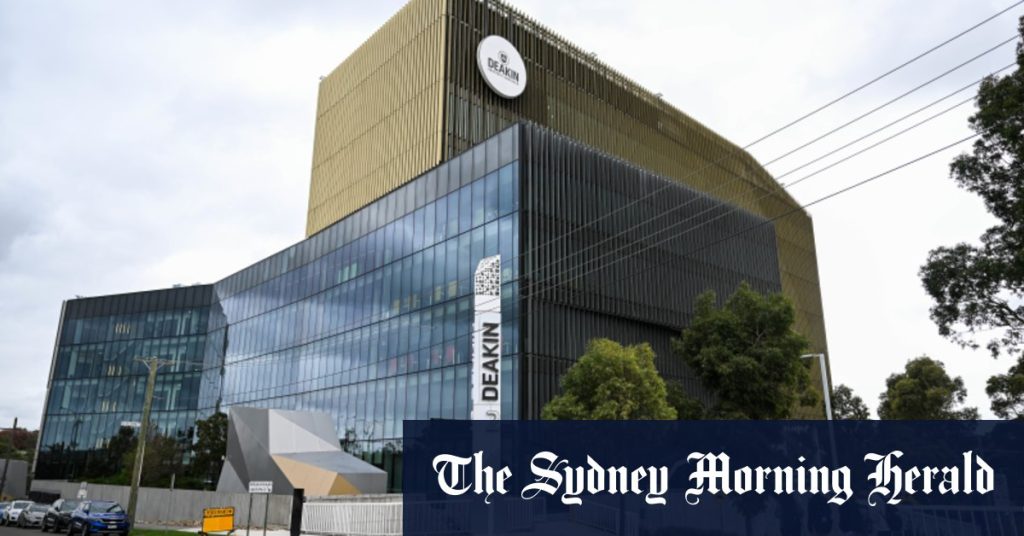Over 35,000 people have been killed in Gaza, and Deakin University is conducting research on explosives and guided weapons that are being sent to Israel and Gaza. Premier Jacinta Allan said she had not been informed about this issue. The protests at Australian universities, including Monash and Melbourne University, are calling for the universities to cut ties with weapons manufacturers. The protests have sparked counter-protests by supporters of Israel, leading to a national debate on free speech and discrimination on campus.
Students protesting in support of Palestine at Deakin University have been accused of being antisemitic, but they deny these claims, saying they are not calling for the abolition of Israel. Prime Minister Anthony Albanese has denounced antisemitism as the worst he has seen and is preparing to launch an investigation into racism at universities. Australia recently voted for greater rights for Palestine at the United Nations. The protests have been met with criticism from Jewish organizations, who describe them as a form of intimidation and promote a violent and racist ideology.
Australian academics have expressed support for the students involved in the peaceful protests, stating that they are facing one of the greatest crimes of the 21st century in Gaza. The academics praise the students for their initiative in calling for an end to Western government support for Israel, divestment from complicit companies, and an end to Israel’s war crimes in Gaza. The protests have brought attention to the ongoing conflict in Gaza and have sparked a debate on campus about free speech, discrimination, and the role of universities in participating in research related to conflicts.
Universities across the state have been urged to remain calm amid the protests and to ensure that campuses are safe spaces for all students. Premier Jacinta Allan emphasized that universities should not be places of violence or antisemitism. The protests have raised concerns about the rise of antisemitism and the need for respectful discourse on sensitive political issues. However, the protests have also been met with counter-protests from supporters of Israel, highlighting the polarizing nature of the conflict and the challenges of promoting constructive dialogue on campus.
The ongoing conflict in Gaza, which has resulted in significant casualties, has fueled tensions on Australian campuses and sparked activism among student groups. The protests calling for universities to divest from weapons manufacturers and take a stand against the violence in Gaza have drawn both support and criticism. The government is preparing to investigate racism at universities, while Jewish organizations have called for disciplinary action against those involved in antisemitic behavior on campus.
Overall, the protests at Australian universities reflect the broader global concern about the conflict in Gaza and the impact of the violence on civilians. The protests have led to debates about free speech, discrimination, and the role of universities in addressing political conflicts. While there is a need for respectful discourse and dialogue on challenging issues, the protests have highlighted the complexities and controversies surrounding the ongoing conflict in Gaza.













